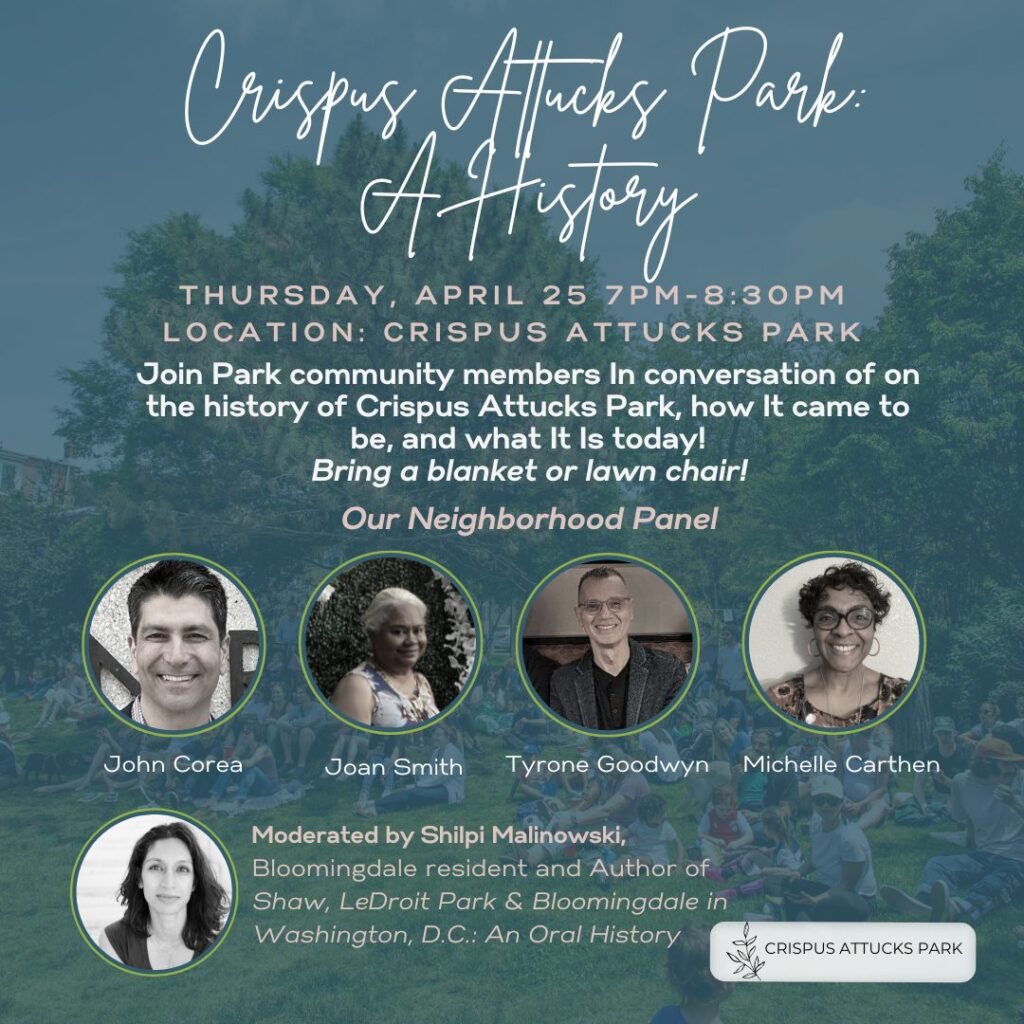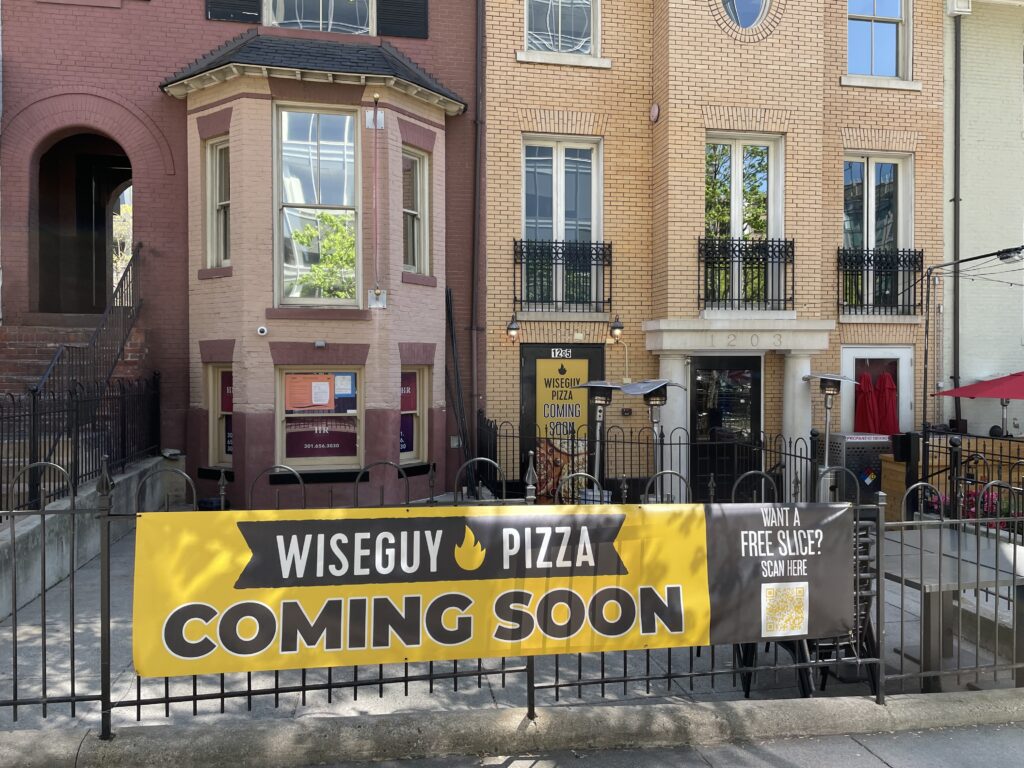
Photo by PoPville flickr user ep_jhu
Going to the Movies is written by Mount Vernon Triangle resident Catherine Taegel.
Last night I went to the screening and D.C. premiere of “A Place at the Table”. The screening also included a passionate exchange from co-directors Kristi Jacobson and Lori Silverbush and Executive Producer Tom Colicchio(Chef, Co-host of “Top Chef”). There was no shortage of passion in the room, which was filled with advocacy organizations focused on finding constructive and lasting ways to feed all Americans. In short, “A Place at the Table” discusses the issue of hunger in America. An easy phrase to say but a complex problem to combat and even further to discuss.
According to the filmmakers, “[f]ifty million people in the U.S.—one in four children—don’t know where their next meal is coming from. [In “A Place at the Table”], Directors Kristi Jacobson and Lori Silverbush examine the issue of hunger in America through the lens of three people struggling with food insecurity: Barbie, a single Philadelphia mother who grew up in poverty and is trying to provide a better life for her two kids; Rosie, a Colorado fifth-grader who often has to depend on friends and neighbors to feed her and has trouble concentrating in school; and Tremonica, a Mississippi second-grader whose asthma and health issues are exacerbated by the largely empty calories her hardworking mother can afford.”
The documentary has the works – deeply personal human stories, high impact graphics, and some heavy political and star power behind it. The human stories of Barbie, Rosie, and Tremonica are heartbreakingly real and clearly representative of a seemingly invisible population that deals with hunger and access to affordable, healthy food on a daily basis.
Continues after the jump.
The audience is presented with an easy to digest, streamlined story. Timeline’s are always useful in documentaries. They help convey impact and get the main question across: During this time period, has anything changed? Is there progress? And if the answer is “no”, then what are we all going to do about it? I classify documentaries into two categories: historical (capturing a general sentiment, person or event during a specific time period) and call-to-action (purpose-driven films that ask viewers to invest and take action). Unabashedly, this falls into the latter of the two.
The documentary is really built around the fact that in the late 1970s the issue of hunger in America was nearly eradicated through very aggressive federal policies and programs. However, since the early 1980s federal programs have been increasingly underfunded. In addition, there has been an insurgence of organizations, primarily faith-based, that have emerged to feed America. However, the problem has not decreased or even stabilized. It’s only grown, by the millions, and these organizations that people now depend on are being stretched thin as well.
The film goes over the general mindsets that somehow people in these situations deserve it. The film discusses not only the sociological effect of food scarcity but the physical and intellectual deficiencies that come with it as well. We learn all about the move from primarily small farmers to the huge agro corporations that now have the second largest lobbying presence on Capitol Hill. Most importantly, though, we hear from the people, as well as the communities in many parts of the United States, that have seen the face of hunger change, because they are now the face of hunger. We hear how they are working to combat it as well. There is a lot of information to digest.
I try to see issues from all sides and call-to-action documentaries tend to always put me off, because I know there are serious unapologetic biases being presented. However, it’s hard not to get behind empowering people to help themselves and making sure that the policies are there to help ease them out of poverty and on-going hunger.
Featured at the screening was Congressman Jim McGovern (D-MA) who puts ending hunger in America as a top priority. He has no problem saying the “other side of the aisle” is essentially causing all the issues and if they would just get on board things would be solved. Well we all know it’s not quite that easy, but I do applaud the idea of a “White House Conference on Food and Nutrition” which he asked the audience to advocate for.
Tom Colicchio was also featured at the screening and throughout the film (fun fact: he’s married to co-director Lori Silverbush). He was well-informed and in an answer to one question from the audience he remarked that his celebrity allows him to get on a soap-box. I appreciated his honesty and general candor. My favorite celebrity featured in the film had to be Jeff Bridges, who founded End Hunger Network in 1984. He really brought it all together by poignantly saying, “It’s about Patriotism….If another country was doing this to our children we’d be at war.”
It’s a well done film. It’s all there. Participant Media has gotten involved and built a social action campaign around the film and overall issue. (They also have one going for “The Promised Land” and “Lincoln”.) Silverbush stated at the screening that she and Jacobson are just storytellers who are passionate about this issue. They teamed up with Participant Media with a goal to inform the electorate and have American citizens demand action from their members of Congress. Prominently featured in the film was the fact that in 1968 a special on CBS aptly called “Hunger in America” caused a similar movement and it nearly ended food scarcity in America. The message is: it has been done so it can be done.
In the late 1960s, the electorate demanded action and Congress responded. Policies that added free breakfasts (on top of free lunches that already existed) were implemented in schools, what is now called the Supplemental Nutrition Assistance Program (SNAP) came into existence, and the federal government showed that smart policies can work. Fast forward nearly 50 years and it’s clear to see something has gone wrong. One in every two children in America will face food insecurity as some point during their childhood (so stated by the film)? 50 million Americans, which include 17 million children, are facing food insecurity right now.
I read things from both sides of the aisle and there is clearly some common ground. Conservative-think tank American Enterprise Institute (AEI) put out a piece in 2011 that very efficiently touches on most of the points the film makes. Progressive think-tank Center for American Progress put out their own position piece in the same vein about a month after AEI. Overall, I encourage you to see the film, get the facts from multiple sources, decide for yourself, and maybe even give a call to your member of Congress. After all, they work for us.
“A Place at the Table” will be released in 35 cities on March 1, including Washington D.C. It will play at E Street Cinema.
Recent Stories

Photo by Beau Finley Ed. Note: If this was you, please email [email protected] so I can put you in touch with OP. “Dear PoPville, Him, dapper chap with a light…

For many remote workers, a messy home is distracting.
You’re getting pulled into meetings, and your unread emails keep ticking up. But you can’t focus because pet hair tumbleweeds keep floating across the floor, your desk has a fine layer of dust and you keep your video off in meetings so no one sees the chaos behind you.
It’s no secret a dirty home is distracting and even adds stress to your life. And who has the energy to clean after work? That’s why it’s smart to enlist the help of professionals, like Well-Paid Maids.

Unlock Peace of Mind for Your Family! Join our FREE Estate Planning Webinar for Parents.
🗓️ Date: April 25, 2024
🕗 Time: 8:00 p.m.
Metropolitan Beer Trail Passport
The Metropolitan Beer Trail free passport links 11 of Washington, DC’s most popular local craft breweries and bars. Starting on April 27 – December 31, 2024, Metropolitan Beer Trail passport holders will earn 100 points when checking in at the
DC Day of Archaeology Festival
The annual DC Day of Archaeology Festival gathers archaeologists from Washington, DC, Maryland, and Virginia together to talk about our local history and heritage. Talk to archaeologists in person and learn more about archaeological science and the past of our






